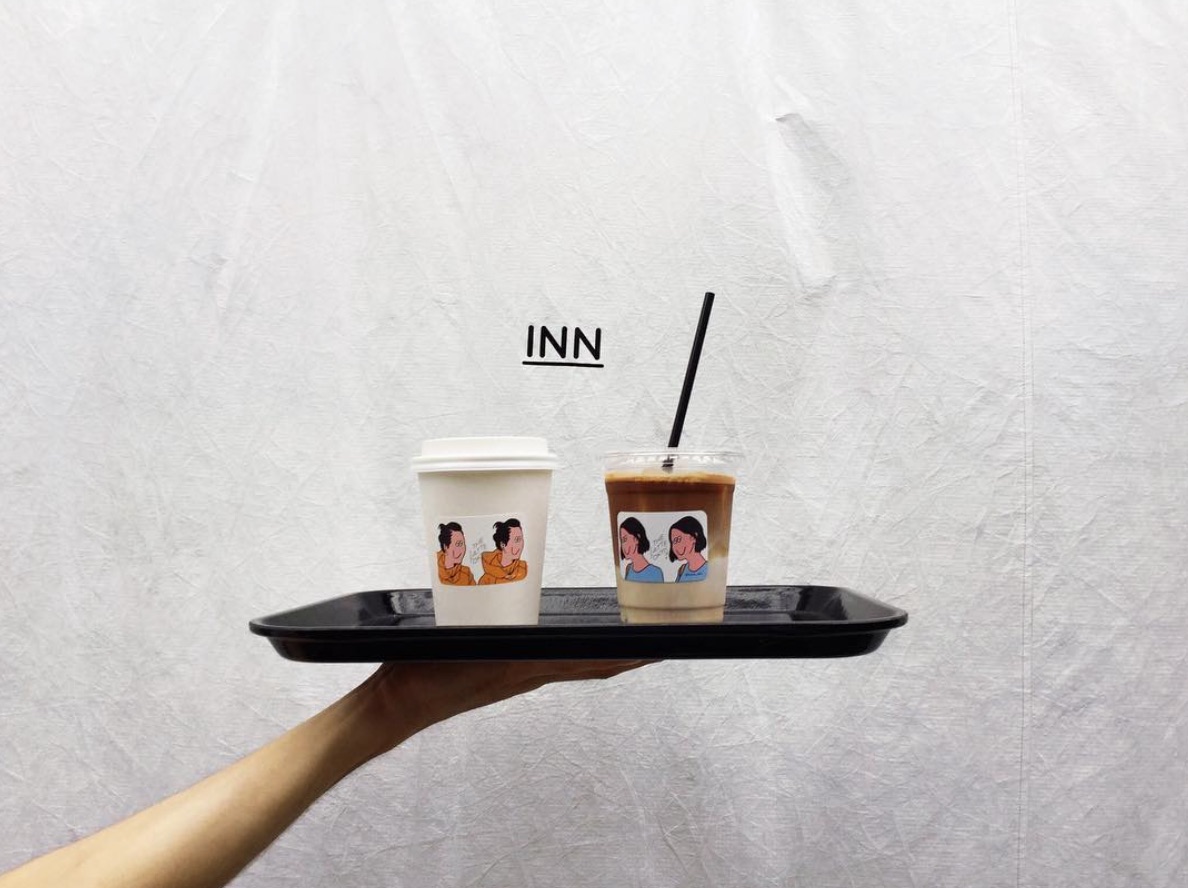Korean youth entrepreneurs also love cafes, but it is a pity that they will not last more than five years.
Wenqing has four vulgarities:
I had a musical dream since I was a child.
Quit and open a cafe.
Change the world by starting a business
Drop everything and go on a trip.
For professional baristas, please follow the coffee workshop (Wechat official account cafe_style)
Obviously, in one world and one dream, there are no fewer literary and artistic young people in South Korea than we do.

Young Korean entrepreneurs also love cafes.
According to South Korean media reports, according to the report "Youth Entrepreneurship activities from the Perspective of National tax Statistics" released by the National tax Bureau on the 27th, young entrepreneurs (15-34 years old) opened a total of 1525 coffee shops in 2011, a figure of 4587 in 2016, an increase of 200.8%.
The IRS statistics on popular start-up industries (with more than 1000 stores opened by young entrepreneurs) show that the coffee shop industry is growing the fastest. The number of coffee shops opened by young entrepreneurs ranked only 10th among the most popular start-up industries in 2011, but it rose to fourth in 2016. The growth rates of shops such as decoration and fashion design (125%), skin beauty (85%) and Japanese food (42.7%) are all relatively high.
The IRS said that in recent years, the growth of the coffee consumption market, the development of the catering industry, the increase in the number of households with a population of 1, and people's increased attention to appearance have all had an impact on the entrepreneurial direction of young entrepreneurs.
It is worth noting that due to the rapid development of online shopping properties, the number of start-ups in physical clothing stores has decreased by 47.3%, and the number of businesses in mobile phones and other communications equipment stores has decreased by 43.3%. In recent years, the change of Korean drinking culture has also led to a continuous decline in the number of small bars.

May be too young to last long.
The entrepreneurial projects of young entrepreneurs do not last long. Statistics show that the "business continuity rate" (in the same industry, the overall proportion of shops that have not closed for more than five years) is the manufacturing industry, which is 40.7%, which is still less than half. The business continuity rate of the catering and accommodation industry, which is less difficult to start a business, is only 15.5%, that of the wholesale and retail industry is 17%, and that of the service industry is 30.6%. The IRS said that the industries with the highest operating sustainability are manufacturing and technology-related industries, while bars, game halls, restaurants and other industries have a relatively short survival time. Due to the lack of relevant expertise, there are not a few young entrepreneurs who rush to start a business without preparation and then give up.
In 2016, the total number of youth entrepreneurship projects was 226000, accounting for 22.9% of the total number of entrepreneurship projects. Of the total youth population (13.4 million), 1.7% of young people choose to start a business. Jin Xianjing, a professor in the department of business management at Asian University, said that starting your own business can ease the pressure on youth employment to some extent, but from the actual statistics, although the threshold for starting a business is very low, it is not easy to succeed.

More than 90% of Taiwan's office workers want to start a business.
Coincidentally, Taiwan's manpower banking industry recently released a "survey of business plans for office workers," and 94% of office workers said they "had a dream of starting a business," a six-year high.
A survey by yes123 found that 22% of entrepreneurial dreams germinated when they were in school, while 19.8% pointed out that they had worked for "three to four years" and 19% said they had worked for more than 10 years (including). Taiwanese have the trend of "three peak periods of entrepreneurship", in which the sprouting of entrepreneurial ideas are concentrated in their student days, the middle generation in the workplace, and senior veterans in the workplace.

The most vulgar dream is inseparable from the cafe.
As for the "hottest" start-up industries, the survey found that they still belong to the category with lower "technical barriers". The top five are: "coffee and tea" (39.6%), "bread and desserts" (38.2%), "other catering (excluding coffee and tea)" (36.4%), and "clothing accessories" (25.2%), "art design and cultural creativity" (20.3%).
Six to ten, respectively: "Tourism accommodation" (19.2%), "Information 3C" (18.2%), "Education and Learning" (14.2%), and "Biotechnology Medical treatment" (13.3%), "Beauty hair" (10.3%).
Although these industries related to people's livelihood are easy to attract customers to spend door-to-door, there are many market competitors and are easy to fall into a "low-profit" business environment, which may lead to a bubble outcome.

Only 30% of them put it into action, but most of them can't get their money back.
I just want to think that there are not too many people who really implement their business plans. According to the survey, 67.2% of them "had dreams but did not put them into action"; only 32.8% were "put into action". In addition, even among entrepreneurs who are still in business at present, only 36% of them have disclosed that they have "paid back" since they started their business. This also means that 64% of them are still in a state of "not getting their money back."
Relevant experts have to suggest that it is important to set up a "stop point" for entrepreneurship. Entrepreneurial failure, compensation exit on the one hand to gain the experience of failure, on the other hand to retain part of the funds, there is still a chance to return to the entrepreneurial market in the future.
Important Notice :
前街咖啡 FrontStreet Coffee has moved to new addredd:
FrontStreet Coffee Address: 315,Donghua East Road,GuangZhou
Tel:020 38364473
- Prev

Tokyo 3.7Ping Mini concept Store [INN] takes you to know different illustrators from coffee cups.
For the exchange of professional baristas, please follow the "Olympic" of the coffee workshop (Wechat official account cafe_style) to the west of Yoyoki Park in Tokyo, bringing together design schools, fashion companies, and various style shops, full of a quiet atmosphere different from Shibuya, is a popular area in recent years, while the small shop "INN" located in this area, although only 3.7ping is very small.
- Next

What are the points for attention in decorating the coffee shop? The design skills of the coffee shop?
Communication of professional baristas Please pay attention to coffee workshop (Wechat official account cafe_style) coffee shop decoration want to attract more consumers, it is very important to have a good atmosphere, and want a good atmosphere, that depends on the design skills. Now the editor takes you to talk about coffee shop decoration and taste a different kind of elegant life. Next, let's take a look at the decoration of the coffee shop.
Related
- What documents do you need to go through to open a coffee shop? coffee shop coffee shop certificate processing process
- How to purchase Coffee beans in small Cafe how to choose a suitable supplier for domestic Coffee supply Company
- How to drink Starbucks Fragrance White Coffee? how to make Australian White Coffee? what Italian coffee beans are recommended?
- The Story of Flora Coffee: the name of Flora Coffee Bean and the implication of the Flowers on Florna Coffee
- How much does a cup of coffee cost? How much is the profit of a cup of coffee? What is the profit of the coffee shop in a year?
- Yunnan small Coffee, known as "fragrant Coffee", introduces the characteristics of Alpine Arabica Coffee producing areas in Yunnan, China
- 2023 latest Starbucks full menu price list how much is a cup of Starbucks coffee what is better to drink the most popular hot and cold drinks recommended
- Starbucks different kinds of Coffee Price list Starbucks menu 2023 Top Ten Best drinks in Starbucks
- Starbucks Spring praise Comprehensive matching Coffee Bean theme Story Packaging implication and taste description
- The cost of a cup of coffee latte American coffee cost price and selling price

